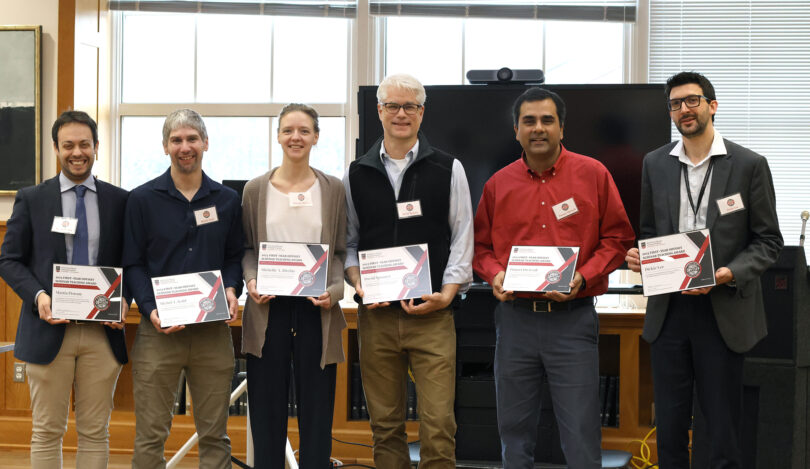The FYO Teaching Award recognizes outstanding instructors who have demonstrated creativity or innovation in instruction, connection to the instructor’s research and incorporation of FYOS program goals into the seminar. This year’s recipients have been fully engaged with their students, provided them with a strong connection to the university through their research and other activities and tied their curriculum directly to FYOS program goals.
Puneet Dwivedi, associate professor in sustainability sciences in the Warnell School of Forestry and Natural Resources, encourages his students to think critically about their environmental impact in his First-Year Odyssey Seminar, “Exploring Sustainable Development.” Dwivedi organizes field trips and introduces his students to resources on campus. The main goal of Dwivedi’s seminar is to teach students how to connect their classwork to real-world situations and express themselves about the issues most important to them.
Students in Michel Kohl’s “Cameras, Collars and Counts: How We Monitor Georgia’s Wildlife” seminar learn about wildlife biology by spending time in the wild. Kohl, assistant professor of wildlife management and wildlife extension specialist in the Warnell School of Forestry and Natural Resources, leads his seminar on a two-day camping trip to Vogel State Park in North Georgia. While hiking around the park, Kohl’s class learns how wildlife ecologists monitor animal behavior and movements with GPS collars and game cameras.
Dickie Lee, assistant professor of music theory in the Hugh Hodgson School of Music, introduces students to Athens in his seminar “The Music of Athens, GA.” Lee’s students learn music theory and terminology, tour local music venues and explore Athens’s music history through learning opportunities like the “Georgia on My Mind” exhibition at the Special Collections Libraries. Lee’s students are given active learning opportunities to get out of the classroom and learn about their new city.
Students in Mattia Pistone’s “MAGMA MIA! Understanding Active Volcanoes with Modern Petrology” seminar are inspired to become the next generation of “Earth’s health care professionals.” Pistone, assistant professor in petrology and volcanology in the Department of Geology, connects his students to the planet by teaching the importance of studying the Earth’s interior. Students learn how scientists can assess Earth’s geological past and forecast future
geological processes.
Michelle Ritchie, assistant professor in the Institute for Disaster Management, Health Policy and Management, designed her seminar, “A Field Guide to Resilience,” as an experiential learning companion to the book “Braiding Sweetgrass.” This book, written by Robin Wall Kimmerer, blends scientific and Indigenous knowledge. Ritchie and her students engage in class discussions about the book and connect with the natural world through trips to UGArden, the Founders Memorial Garden and other field days.
Students in David Spooner’s seminar, “The Experience of Place,” learn what makes the difference between the landscapes, buildings and rooms they enjoy versus the spaces that are uninspiring. Spooner’s students learn by examining the buildings, structures and facades around campus, engaging in discussions and critiques of their design drawings and researching how “good” design serves the public good. Spooner is an associate professor in the College of Environment and Design.





